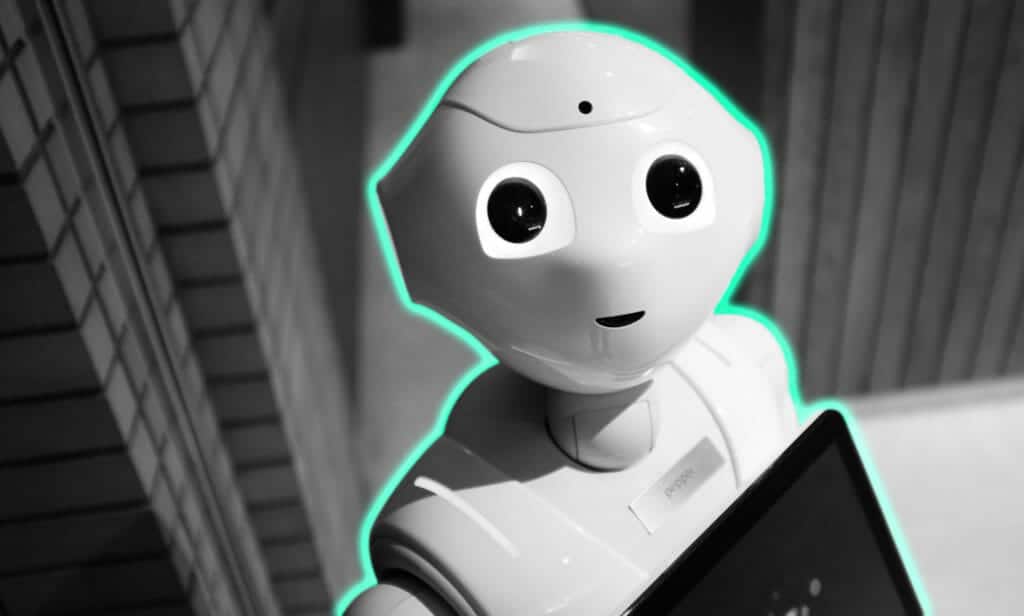Take: a standard browser, a few free minutes at the end of the day, subtract all search terms that have anything to do with “C*****”, “pandemic” or “crisis” and see what happens when you type “artificial intelligence” into the search line. Here is the – certainly not objective – image of any afternoon these days:
“Artificial intelligence: chatbots for heartbreak [1]?”
“Artificial Intelligence in Earth Observation [2]”
“Artificial intelligence is now set to conquer the cow barn [3]”
“AI as a quality booster in digital marketing [4]”
“Artificial intelligence at the heart of better communication [5]”
Respect. Artificial intelligence is obviously quite, shall we say, … multi-faceted. Is there anything to it? What is there to it? What does AI do, who needs AI and – is it just coming or is it already here? We want to take a look at this topic in an entertaining way, but still with the necessary depth.
Is that intelligence already or can that go away?
“Meyer’s Großes Taschenlexikon” (a somewhat out-of-fashion source with linear storytelling) describes intelligence as “… the ability to cope with novel situations by problem-solving behavior that makes “try-and-error” behavior or random results dispensable.” Okay, so: solving problems without try-and-error and without leaving anything to chance. Now, this is not a deep psychological treatise, but is supposed to be an article about the well-being and effectiveness of artificial intelligence. So why this excursion? Because it is important! Because it helps us understand what AI essentially is: an evidence-based methodology to solve problems. Let’s look at the headlines again and, yes, somehow all headlines have to do with problems. More or less.
Little data, little AI. Lots of data, lots of AI.
Let’s keep it short: AI helps to decipher patterns. We don’t mean wallpaper patterns here, but data patterns. Put simply, the purpose of AI is to unearth hidden value-added information waiting to be discovered in databases. And again, it’s worth looking up, at the beginning. The heartbreak aside, all the headlines describe challenges in which new insights are gained, or, to stay in our image, patterns are detected, by analyzing large amounts of data.
These patterns alone do not make AI – but they form the basis for AI. That’s because AI can not only help identify patterns in source data, but also suggest solutions based on a comparison with historical information or a comparison with similar cases. Admittedly, this is not yet entirely free of try-and-error, but we are also only at the beginning of a development that will define our lives in the coming years. AI is a digital leap in information technology.

AI – can do a lot. Above all: learning
How was it with humans – made a mistake once, learned from it and never made the same mistake again. Isn’t there something missing? Exactly – the question mark. It is by no means the case that we are perfect. People make mistakes and even tend to make the same mistake more than once. To the same extent that we are superior to technology by incorporating empathy and emotion into our decisions, we are inferior to it. Because we are forgetful and, yes, sadly, all too often inconsistent.
AI, on the other hand, never forgets. That’s why it “learns” with each new set of data. So, over time, it creates more and more accurate models by making correlations between the right data. Be it to detect trends, recognize error patterns or even accompany standard interactions.
“AI, take over”
Bots are already taking over some of the work, for example in the online service sector. No they are not really good yet, but yes they are getting better. Another example: What are the customers that are worth investing sales resources in to develop specifically? What a top salesperson feels today, a normal salesperson can work out with the help of AI.
What do the investment patterns look like? Are they coupled to macroeconomic data? What have comparable customers done in comparable situations? If patterns are there, AI can recognize them.

I have AI – now what?
Actually, the availability of information, everywhere and at any time, should make our daily work easier. We need to do some research? No problem, the data is there. And yet a problem, because there is too much of it. Too much data from too many sources and too little time to draw the right conclusions from it. Let’s use AI for what makes the most sense: helping us understand how to do better business.
Yes, that’s right, better business.
Here’s another example. Today, everything is online. Products are online, services are online, customers are online. In the process, whether they are new customers or existing customers, they leave digital footprints. With every support call, every event registration, every online or offline purchase, and with their click behavior on company websites. Even the top salesperson mentioned above can barely decipher this data.
You guessed it: AI, on the other hand, can. Intelligent tools create a 360-degree picture of individual buying behavior. This is a great opportunity for marketers and salespeople to provide customers with even more personalized support along their customer journey.
AI in marketing – the beginning of the end? Or the end of the beginning?
Let’s conclude. Can AI improve marketing? Yes, it can. Already today, many CRM systems offer the possibility to integrate AI components to analyze customer behavior, cluster customer segments and develop effective and efficient measures or campaigns.
Will AI revolutionize marketing? Yes, because topics like hyperpersonalization (the website that greets you personally) and AI are inextricably intertwined.
Will AI make marketing obsolete? Not at all, it will become more important than ever because it will be able to work even more closely with sales to engage the right customers with the right actions.
Finally, the one big question on the minds of many: will AI make us all redundant? If you’re a machine, that may well happen. If you are a human, with feelings, emotions, values, assessment and your own opinion: NO, certainly not. It will change our working world, that’s true. We are convinced: for the better.
“I want AI.”
So do we. Talk to us and we’ll tell you about the possibilities of AI. From person to person. Over a cup of good machine oil, freshly brewed coffee.
Authors of this article: Nicolas Wandschneider & Thomas Kombrecht
[1] Option.news, [2] DLR Portal, [3] Berliner Zeitung, [4] Springer Professional, [5] OnlineMarketing.de